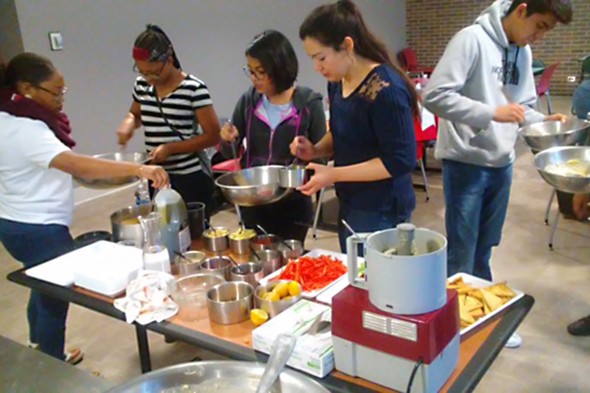BetaBuddy empowers youths with diabetes
 Being a kid with Type 1 diabetes is a challenge every day.
Being a kid with Type 1 diabetes is a challenge every day.
From sunrise to sunset, children with diabetes regularly check blood sugars, plan meals and pump insulin. They prick their finger between seven and 15 times.
To help combat these challenges, urban health undergraduates at UIC are volunteering their time to provide an extra layer of support.
BetaBuddy, a pilot program centered on mentoring and empowering youths to take control of their diabetes, pairs patients with urban health students to assist in disease management. The partners meet once a month at a
BetaBuddy social event, then are encouraged to communicate via text and phone conversation.
“[The goal] is that the kids all feel good about themselves — even as a person with diabetes — and that you don’t have anything that stops your goals and wishes,” said BetaBuddy co-director Marla Solomon, senior diabetes educator in pediatrics.
Beyond dwelling on the patients’ hardships, though, UIC students also attempt to connect on a personal level.
“Kids like me because they see me as a bigger kid,” said Michael Kerolus, a UIC junior involved with the program. “We talk about movies, TV, just things at that age that I knew I enjoyed doing. Any level we can connect with them outside their diabetes is where we begin.
“We’re not their doctor. We’re not their health care professional. We’re there to support them. We don’t want this whole thing to be how’s your blood sugar? How is your diabetic stuff going? We want them to just be buddies in general and then really focus in on medical stuff.”
Bernie Perea, a biology major who hopes to become a physician’s assistant, and his buddy, Sebastian, are “a success story” from the program’s inaugural year, Solomon said.
“We stay in contact,” Perea said. “I may ask him how his blood glucose readings were that day. He talks to me about his quarterly A1C levels when he meets with his pediatrician. [I’m] just making sure he’s on top of it.”
It may seem technical and advanced for undergraduates, but Solomon and fellow co-director Angela Holliday prep students by teaching a crash-course on general terms and giving packets of information to help communication with parents and kids.
Solomon reiterated how impressed she’s been with UIC students.
“The urban health students are phenomenal — they’re just incredible,” Solomon said.
As for next year, Kerolus recommends that more urban health students try to get involved.
“It made me realize that we all have a part to play, whether big or small,” Kerolus said.
